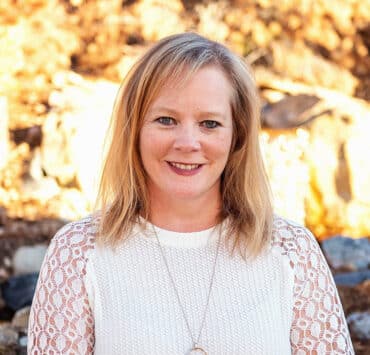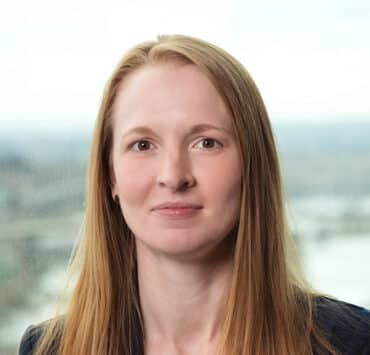As IP counsel at Weill Cornell Medicine, Eric Bryant puts an incredible arsenal of legal, scientific, and critical thinking to work for the good of the future of medicine. It’s through his unusual path that he’s amassed a unique set of skills that have continually made him “the guy” to reach out to, whether you’re an inventor, a litigator, or any other professional in the IP space.
Bryant is truly a Renaissance man. In his spare time, he writes historical fiction (at present he’s working on a novel, a Gilded Age thriller set in New York City), plays the violin, and whips up French desserts, harkening to his time training as a pastry chef in Paris. His days are so technically intensive that creative pursuits give the IP lawyer a different set of muscles to flex. But it’s only the latest outgrowth of his impressive capacity.
During undergrad, the future lawyer focused heavily on biotechnology, biomedical engineering, and the kind of classes that presuppose med school. He wanted to become a physician because he felt called to a service-based career, but several semesters of volunteering in healthcare settings quickly proved that Bryant’s mind belonged in a different field. The trauma and life-or-death stakes stayed with him too long; he didn’t want to compartmentalize legitimate reactions to people in pain. So, after much consideration and soul-searching, he decided to attend law school instead of medical school.
But Bryant’s science background made him an indelible litigator straight out of law school. And he did a lot of it.
“One of my initial roles was for a boutique litigation firm, and it required a lot of creativity. It was really up to you how deep into the facts of a case you wanted to get. I liked the challenge,” Bryant says.
Bryant became “the guy” to write the opposition papers to the firm’s most complicated summary judgment motions. After extensive review of the case file, including hundreds of pages of deposition testimony, he found inconsistencies in the plaintiff’s case. Then in court, all he needed to do was raise a single question of fact. No one could home in on the core issue like Bryant. Eventually, he was writing oppositions just as often as he was deposing witnesses.
“I don’t just hear what a person is saying. I’m thinking through what they’re communicating and really trying to digest it so that my response isn’t some superficial understanding of what I’ve just been told.”
Eric Bryant
At the same time, Bryant was working on a lot of discovery, examining the intertwining of science and the law. His interest grew to the point where he left private practice to become a patent examiner for the US Patent and Trademark Office (USPTO). By happenstance, Bryant wound up reviewing applications for patents that didn’t fit neatly into any other class. Fluid movement devices, respirators, skin graft technology: Bryant saw everything under the sun and quickly learned how to scan quickly, understand it, figure out how to articulate what the invention actually was (or wasn’t), and act accordingly.
“When you look at the work today, I think my time as a patent examiner is really my superpower,” the IP counsel explains. “I am an insider. I understand how to get patents allowed. I know what constraints are placed on the examiners. I understand their thinking process. I inherently understand that, sometimes, an initial rejection is actually a good thing because it forces the applicant to clearly distinguish their invention from what is known in the prior art. Sometimes having that record makes your next submission stronger. You just wouldn’t know that if you didn’t work at the USPTO.”
Now at Weill Cornell, Bryant is once again “the guy.” He handles the organization’s entire patent portfolio, which means meeting with inventors, running searches, helping steer breakthroughs, and guiding inventors through the process step-by-step.
Bryant understands the nuances of the process, like the fact that as soon as he receives a rejection, he knows every application the patent reviewer checks from that moment on will slowly drive the initial application from memory. The IP counsel says he ensures that outside counsel follows up quickly to keep the prior art and how it was applied to the patent claims fresh in the examiner’s mind. That requires an airtight calendar and adherence to deadlines that many lawyers simply could not handle. This is Bryant’s strong point.
“My time as a patent examiner is really my superpower. I am an insider. I understand how to get patents allowed.”
Eric Bryant
More holistically, Bryant says he’s always been well-served by his instinct to listen before speaking. It may sound pedantic, but when ensuring that he’s translating the ideas and dreams of inventors for a multitude of different audiences, from examiners to investors, it’s absolutely critical to understand what he’s talking about.
“I don’t just hear what a person is saying,” Bryant explains. “I’m thinking through what they’re communicating and really trying to digest it so that my response isn’t some superficial understanding of what I’ve just been told. You learn about people’s personalities, how to navigate them, and how to articulate and convey your ideas, whether you’re talking to a judge or to an inventor.”
Bryant is excited about the future ahead. Generative artificial intelligence (AI) can’t be listed as an inventor at present, but the IP counsel is still fascinated about the continually evolving regulatory environment and what it means for AI. Bryant also says that with global searches available with the tap of a few keystrokes, it’s tougher than ever for potential patents, but the lawyer also believes it demands the height of creativity from inventors, and a high bar is never a bad thing.
But what excites Bryant the most is the same thing that initially pushed him toward medical school and then inspired his pivot to law school: he gets to help people every day. He gets to use all of his superpowers for good.
Scully Scott Murphy & Presser PC (“SSMP”) is proud to provide legal services to Fortune 100 companies, universities, research institutes, and startups to help secure worldwide patent protection of cutting-edge innovations for over 50 years. Many of our professionals have advanced science or engineering degrees, or extensive industry or research experience, which enables us to handle highly complex technical matters and develop effective strategies to secure global patent protection. As a result, SSMP has an unmatched reputation for our ability to provide the highest quality, value-oriented work product for clients in a wide variety of technological fields including biotechnology, pharmaceuticals, chemistry, material science, information technology, electrical engineering, and mechanical arts.


